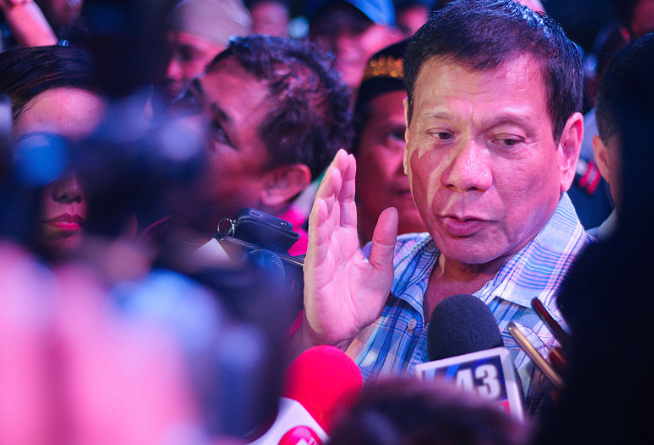Publications
Of Course China, Like All Great Powers, Will Ignore an International Legal Verdict
- Details
- Written by: Graham Allison
This week the Permanent Court of Arbitration (PCA) will deliver its award in the Philippines’ case against China over maritime disputes in the South China Sea. In a bid to thwart Beijing’s attempt to turn the South China Sea into its own virtual lake, Manila contends that China’s claim to exclusive sovereignty over all the islands and shoals within the nine-dashed line – which encompasses 86 percent of the Sea – has no basis in international law. There is not much suspense about what the tribunal will decide: it will almost certainly side with the Philippines. The United States and its allies have already started criticizing China for signaling in advance that it will ignore the court’s ruling, which one Chinese official derided last week as “nothing more than a piece of paper.”
Duterte, China and the United States
- Details
- Written by: Florence Principe

©Rappler: http://goo.gl/uVc6ZZ
A Toxic Relationship. Philippines-China relations have been rocky under the Aquino government. Aquino brought the dispute to the United Nations Permanent Court of Arbitration, strengthened ties with the United States through the Enhanced Defense Cooperation Agreement, and refused to hold bilateral talks related to the maritime dispute. Such actions have of course embarrassed and antagonized China, turning Philippines-China relations into its current toxic state.
Filipino-American Ties Will Remain Strong, IF...
- Details
- Written by: Aileen S.P. Baviera

©Keith Bacongco: https://goo.gl/lPYtud
A Duterte administration may take a somewhat different approach to foreign policy and display a governance style unnerving to some, but like most other governments, its behavior will be defined by a more traditional factor: national interest.
China's Rise And What It Means For The World
- Details
- Written by: Lucio Blanco Pitlo III
China's continuous climb to world power brought many questions into light - was becoming a world power a deliberate and planned undertaking and, most importantly, how will China behave as a world power? With regards to the first question, many hold the view that China's ascent to power is premeditated and long-planned, led by a single political party and a strong central government which is heavily involved not only in governance but also in the economy. Slogans like “renewal”, “revival” and “rejuvenation” seems to support this thesis. For centuries long before the rise of Europe and the US, China had already produced a great civilization and, through its tributary system, held a vast empire with numerous neighboring vassal kingdoms. Hence, from this vantage point, China's modern rise can be seen as inevitable – a reversal of the century of humiliation and from then continuing on with the quest to retake its pre-eminent world position in the hierarchy of nations. However, while there are those who welcome China's rise, there are those who find it discomforting and this can be largely attributed to different views on how the country will behave after it has restored its “Middle Kingdom” world status - after it had reclaimed its historic right or its own version of manifest destiny . China's failure to better articulate its position and variances between pronouncements it made and actions on the ground add to this anxiety and discomfort.
